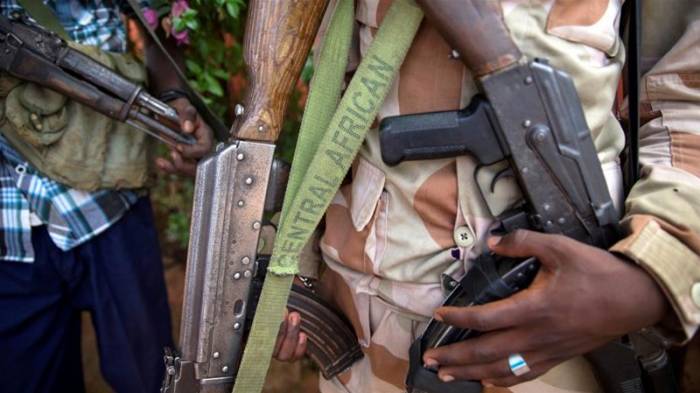Russian online news organisation Investigation Control Centre (TsUR) said in a Facebook post on Tuesday the three reporters - identified as Orhan Dzhemal, Alexander Rastorguyev and Kirill Radchenko - were in the country on assignment.
The journalists had been investigating the activities of the so-called Wagner group, an organisation of private military contractors.
"The Russian embassy in the CAR, unfortunately, was not informed about the presence of the Russian journalists," a statement by Russia's foreign ministry said, without offering any details about the circumstances of their deaths.
Local law enforcement is now working with the Russian embassy in an attempt to find out what happened.
Henri Depele, the mayor of the town of Sibut, around 200km northeast of the Bangui, said the journalists were killed at around 10pm (21:00 GMT) on Monday. Their driver survived the attack.
"According to the driver's explanations, when they were 23km from Sibut ... armed men emerged from the bush and opened fire on the vehicle. The three journalists died instantly," he said.
TsUR's statement said the journalists flew into CAR on Friday and that its last contact with them was on Sunday evening.
Following the report of their deaths, Mikhail Khodorkovsky, who finances TsUR and is one of Russia's richest men, as well as a critic of Russian President Vladimir Putin, said: "The crew were working in cooperation with my project ... on an investigation into Russian private mercenaries, in particular the Wagner group.
"These were brave men who were not prepared simply to collect documentary material, but wanted to 'feel' it in the palms of their hands," a statement on Khodorkovsky's website read.
In November 2017, Khodorkovsky, who lives outside Russia, started funding an investigative outlet focused on Russian corruption. The media organisation, called Dossier Center, focuses mostly on submissions and leaks by anonymous sources.
CAR, a former French colony and one of the world's poorest countries, fell into a protracted political crisis in 2013 after President Francois Bozize was overthrown by a coalition of Muslim-majority rebel groups called the Seleka, who in turn were driven from power.
Most of the country is beyond the control of the government in Bangui and a 12,000-strong United Nations peacekeeping mission has struggled to keep a lid on the violence.
AL JAZEERA
More about: CentralAfricanRepublic
















































